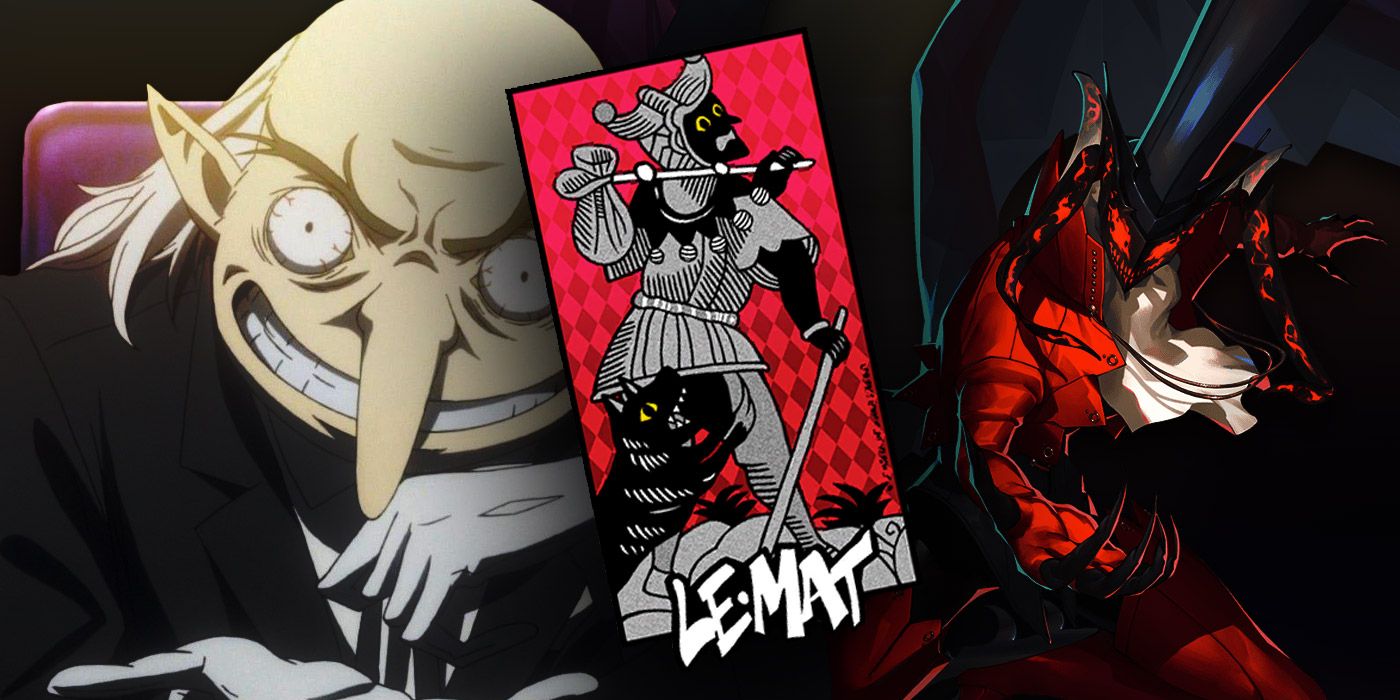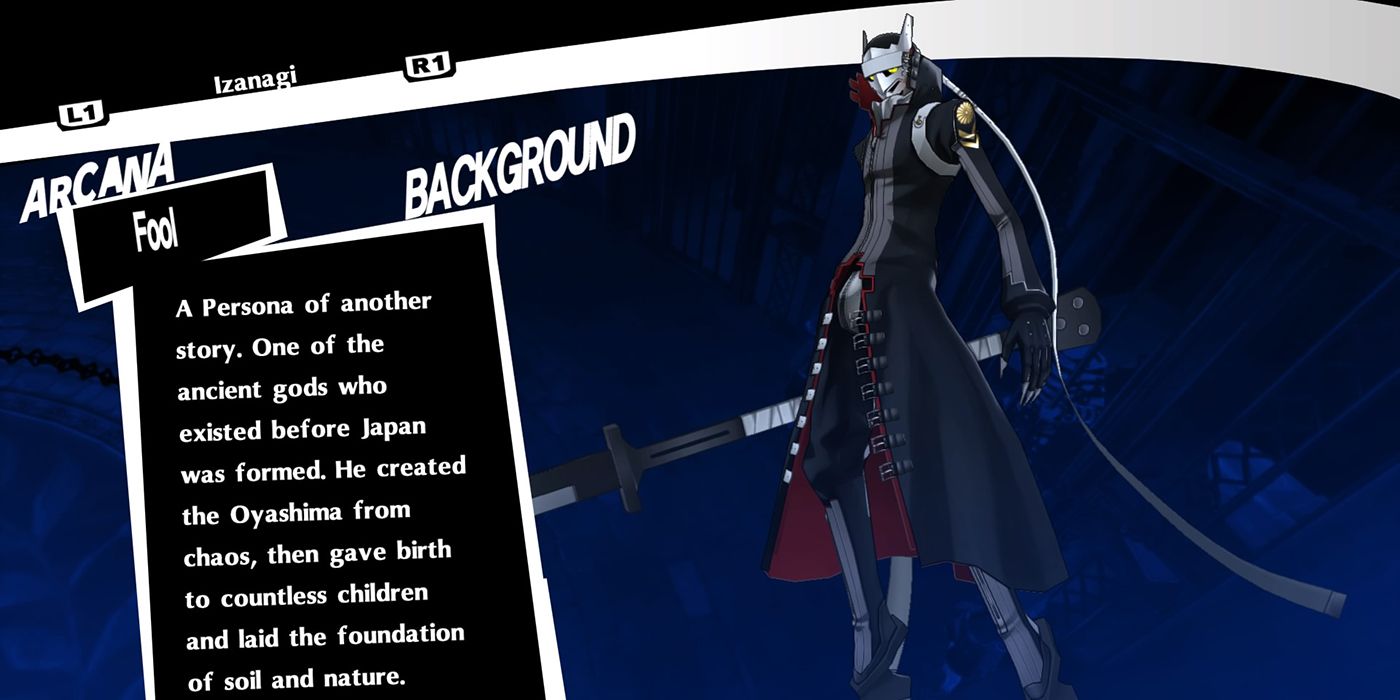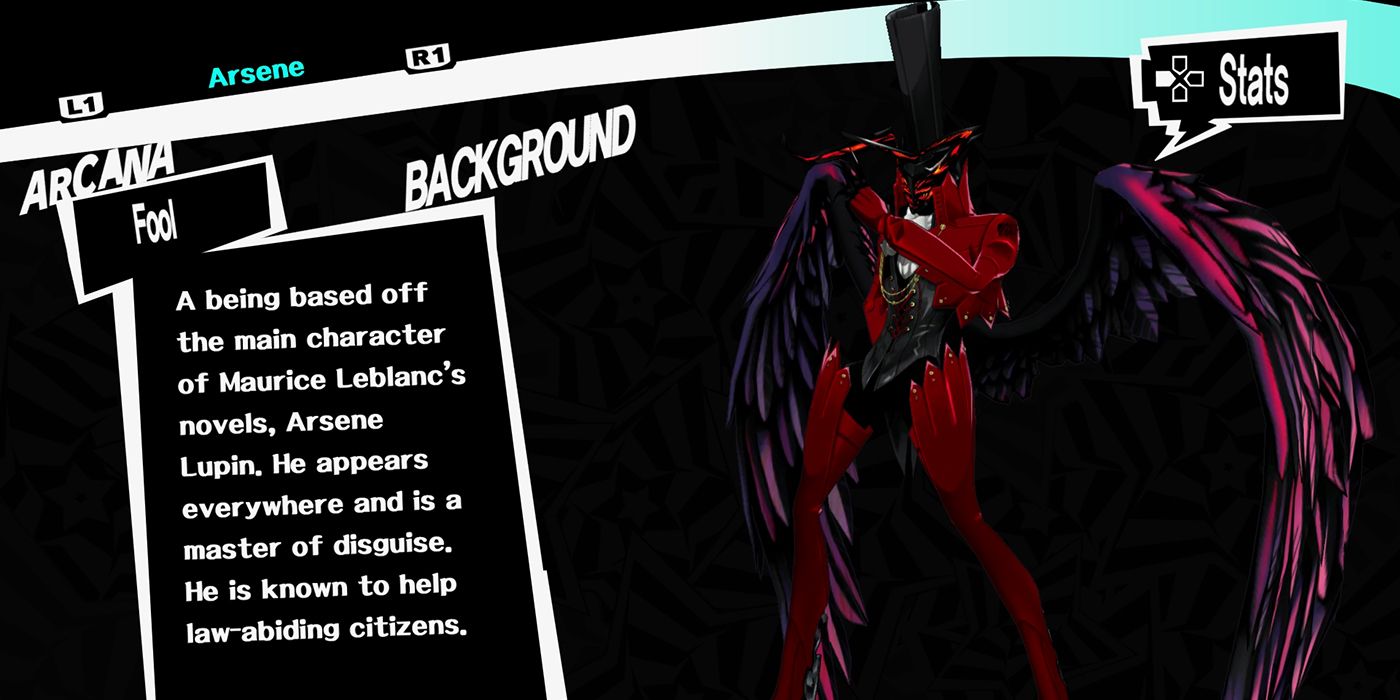Persona 5, and the Persona franchise as a whole, features an ocean of deep, symbolic lore. Each of the different personas the main character and his allies can summon are based on figures of fiction and folklore. While Persona games routinely take liberties with these entities' appearances, it faithfully ascribes their natures to the major Arcana of tarot cards, who represent the different confidants a player can form relationships with over the course of the game.
As fan would expect from a game that layers deep meaning on something as innocuous as a Joker's character's glasses in Persona 5, each arcana is rife with symbolism. Chief among these arcana is the Fool, which is most often associated with the franchise's protagonists. The Fool, numbered either 0 or 22 in the set of arcana, can be likened to a joker in a deck of normal playing cards. It is a blank slate much like the main characters' ultimate identities are left up to the choices of the player.
Much of Persona 5's Fool arcana is devoted to entities like Ose and Decarabia from the Ars Goetia, a mid-17th century text on the art of demon summoning. The game also makes allowances for a pair of Greek deities, Dionysus and Orpheus, and the Hindu god, Vishnu. While it's easy to see how conjured demons and gods of dreams and madness can represent both tricksters and potential, there is a trio of intriguing outliers who deserve special attention.
At first glance, Izanagi, the borrowed DLC persona from Persona 4's protagonist, doesn't seem to fit the mercurial nature of the Fool at all, until one focuses on the arcana's affinity for raw potential and creativity. Izanagi, and his sister/wife, Izanami, are responsible for shaping the Japanese Archipelago, and birthing many other famous deities in the Shinto pantheon, including the "Three Precious Children," Amaterasu, Tsukuyomi, and Susanoo. Izanagi himself is a wellspring of boundless possibility and transforms the world into his canvas.
Interestingly, Izanagi's story has many striking parallels with fellow Fool, Orpheus (borrowed from Persona 3's protagonist), as both figures descend into the underworld, attempting to retrieve their lost lovers. Izanami, who becomes the goddess of death, is unable to return to the realm of the living after consuming food from the underworld, which is a parallel to another Greek myth. Persephone, Hades' wife, suffers the same fate. These striking parallels are particularly puzzling, because Japanese civilization had no discernible connection to ancient Greek civilization at the time the myths were conceived.
Arsene: The Gentleman Thief
Arsene, Joker's starting Persona, like most of the Phantom Thieves' personas, is actually based on fairly recent fictional figures rather than ancient folklore. The French author, Maurice Leblanc, wrote Arsene Raoul Lupin as a romantic "gentleman thief," or modern Robinhood. He also serves as the basis for the famous anime, Lupin the Third, which is one of Persona 5's countless subtle references and Easter Eggs. Given the game's theme of helping people via stealing hearts, Arsene is an ideal avatar for the main character.
As mentioned in one of Persona 5's classroom trivia scenes, the character of Arsene was a contemporary of Sherlock Holmes, and Leblanc actually featured Holmes in one of his stories—without Sir Arthur Conan Doyle's permission. It is fitting that the author behind "the perfect thief" would unrepentantly steal the perfect detective as his adversary—a dynamic that mirrors Joker's relationship with the love-him-or-hate-him rival character, Goro Akechi.
Since Arsene's character isn't a defined by lore, but a fictional character in public domain, Persona 5's character designer, Shigenori Soejima, was free to run wild with his appearance. And the result is one of the coolest designs for a lead persona to date. His top hat and elegant vest are nods to the character's gentlemanly origins, as is the Thief Cane weapon that can be produced by sacrificing him.
Satanael: Angel of Rebellion
The most powerful Fool persona—and the most powerful persona in the game—is Satanael, which can only be created in a subsequent Persona 5 playthrough with a tricky series of fusions. As one would assume, Satanael is related to the Judeo-Christian figure, Satan. More specifically, it is Satan's angelic name, prior to being cast out of heaven by the archangel Michael, as "-ael" is a suffix signifying angelic nature.
According to gnostic scriptures, Satanael was cast out of heaven for defying the god, Yaldabaoth, which—by no accident—is also the name of Persona 5's final boss. Satanael leads a cohort of angels in rebellion against Yaldabaoth. Depending on the texts involved, Yaldabaoth is either a false deity that Satanael allows mankind to rebel against, or he is an outright villain, as one would traditionally associate with the name Satan.
Based on Persona 5's take, Yaldabaoth is an imperfect god and Satanael is the only thing that can put him down for good. Given the game's transgressive themes of rebellion and defying toxic authority figures, Atlus is transparently suggesting the players should harbor some sympathy for their inner devils. It is a series staple that each of the game's main characters must confront dark truths about themselves, or overcome incredible adversity to awaken their powers as a persona user.
This sympathetic portrayal also suggests that Satanael is a figure analogous to literary depictions of Lucifer, who could be considered the same entity by a different name. This connection is emphasized by the fact that Joker's ultimate weapon, which can only be created by sacrificing Satanael, is named Paradise Lost, after John Milton's famous epic poem.
Drawing on ageless folklore and re-imagining it to suit modern social commentary is one of the Persona franchise's greatest creative strengths. It not only makes for appealing, intriguing games—it transforms each title into games that mean something and contribute to topical discourse. Even though Persona 5 released in 2016, and Persona 5 Royal released three years later, they are some of the most topical titles to play in 2020.
Persona 5 Royal is available for PlayStation 4.




